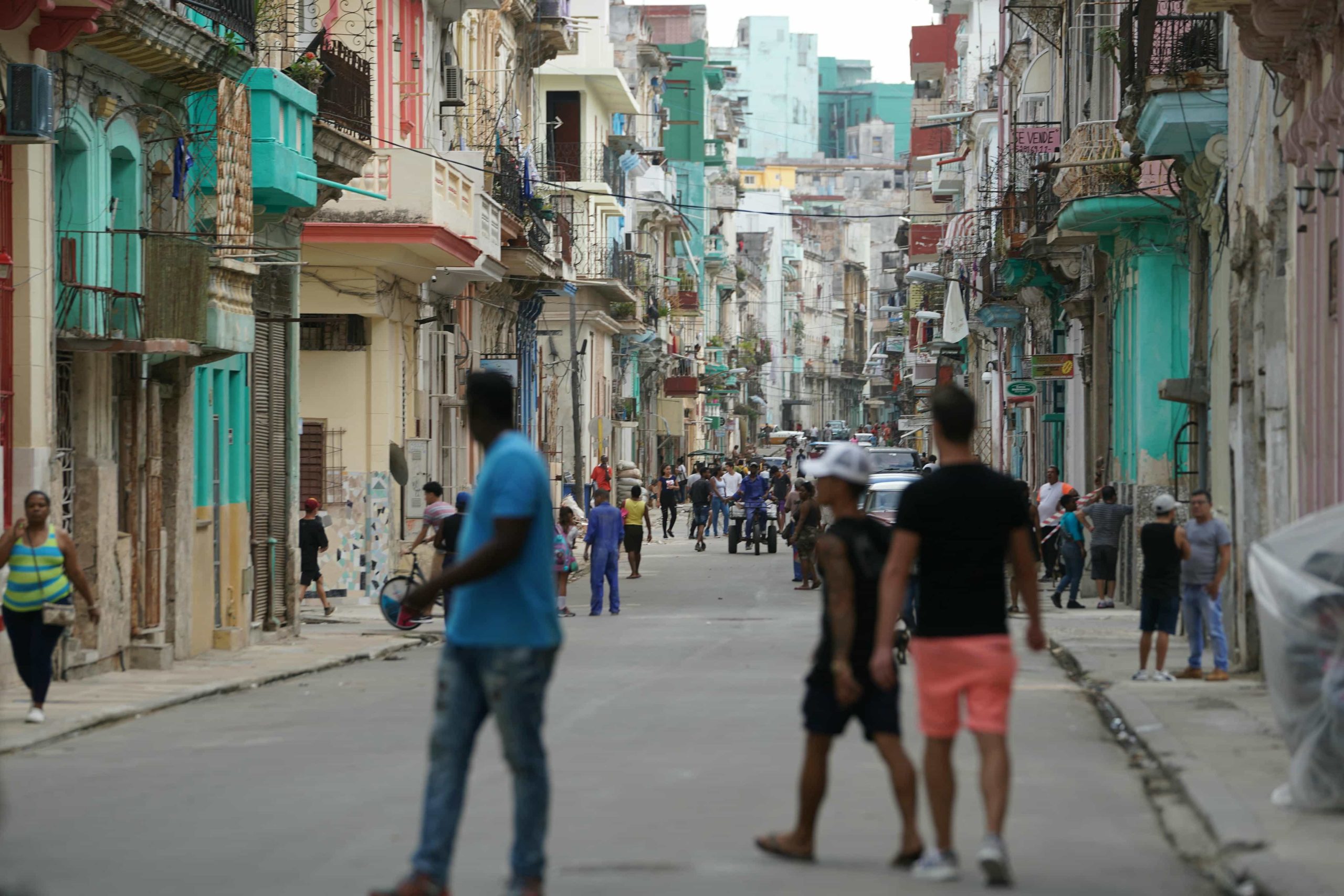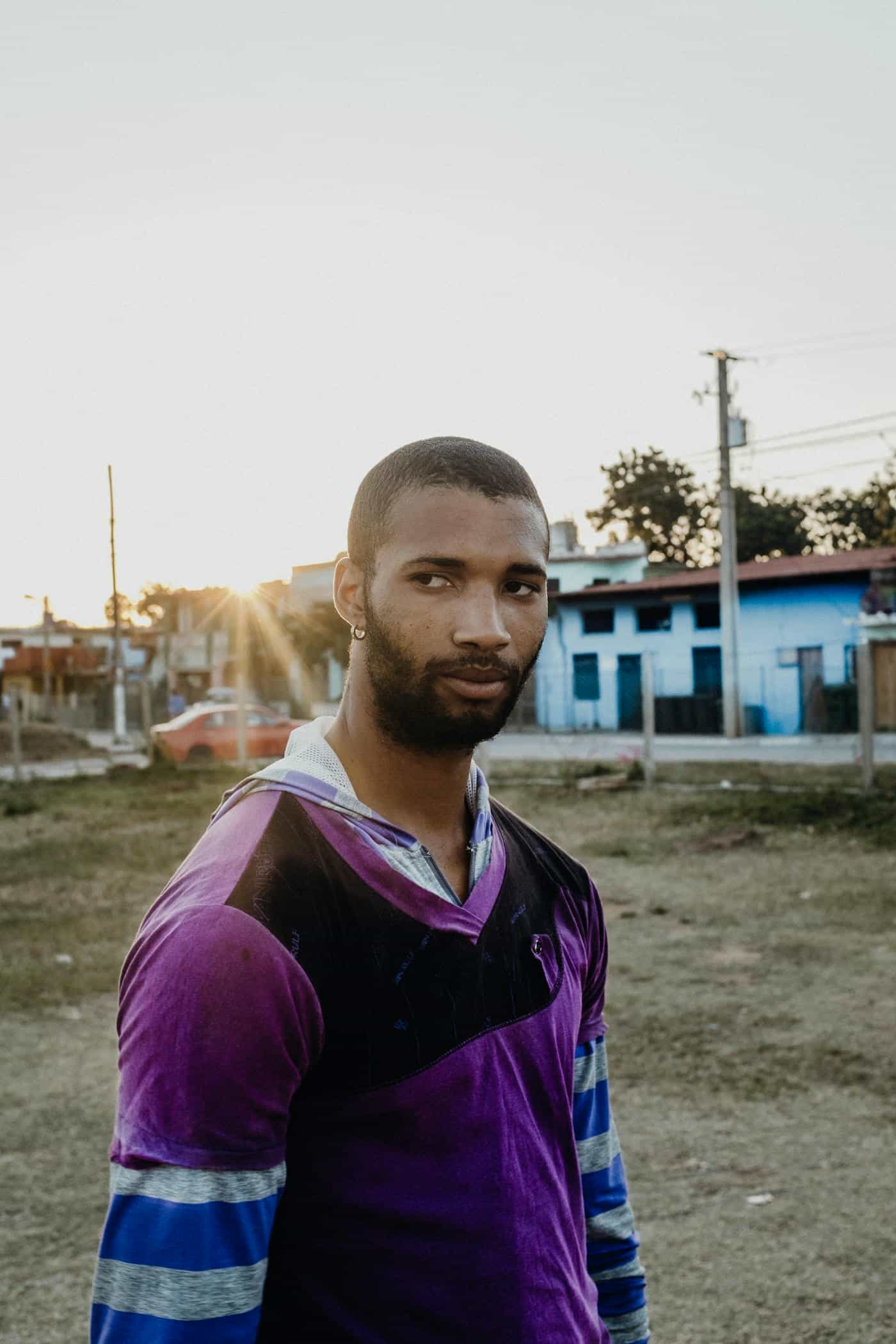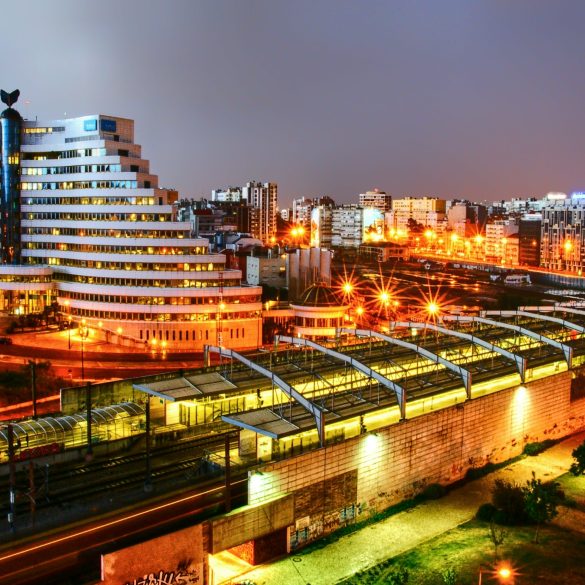Der außergewöhnliche Aufstieg kubanischer Sport-Superstars: Wenn sportliche Höchstleistungen auf weltweite Berühmtheit treffen
Als ich vor drei Jahren durch die Straßen Havannas ging, wurde ich Zeuge von etwas, das meine Vorstellung von Sportstars grundlegend veränderte. Über 200 Menschen hatten sich vor einem kleinen Café versammelt – nicht zu einer politischen Kundgebung oder kulturellen Veranstaltung, sondern um einen Blick auf Mijaín López zu erhaschen – Kubas legendären griechisch-römischen Ringer.1Die Ehrfurcht in ihren Augen erinnerte mich genau daran, warum kubanische Athleten eine so einzigartige Stellung in der globalen Sportlandschaft einnehmen.
Kubanische Sportler messen sich nicht nur – sie übertreffen sich selbst. Sie werden zu Symbolen, Ikonen und manchmal auch zu widerwilligen Politikern. Ich beobachte seit über einem Jahrzehnt den internationalen Sport und bin selten Sportlern begegnet, die neben ihrem außergewöhnlichen Talent auch so komplexe Belastungen tragen. Diese Männer und Frauen repräsentieren mehr als nur persönliche Errungenschaften; sie verkörpern Nationalstolz, kulturelle Identität und oft die unmögliche Entscheidung zwischen Heimat und Zukunft.
Kubas Status als sportliche Hochburg
Mit einer Bevölkerung von nur 11,3 Millionen Menschen belegt Kuba weltweit den 18. Platz bei den olympischen Medaillen aller Zeiten – eine außergewöhnliche Leistung, die das Land vor Nationen mit einer fünfmal größeren Bevölkerung platziert.2Diese bemerkenswerte Effizienz bei der Ausbildung von Weltklasse-Athleten hat kubanische Sportler weit über die Grenzen ihres Inselstaates hinaus zu bekannten Namen gemacht.
Olympische Legenden, die sportliche Höchstleistungen neu definierten
Ich möchte Ihnen erzählen, wie mir zum ersten Mal das Ausmaß kubanischer sportlicher Erfolge wirklich bewusst wurde. Ich recherchierte olympische Statistiken und stieß dabei auf etwas absolut Unglaubliches: Kubas Medaillenquote pro Kopf kann es mit der von Sportsupermächten wie den USA und Russland aufnehmen. Doch ehrlich gesagt, Statistiken spiegeln nicht die wahre Geschichte wider. Die wahre Geschichte liegt in den individuellen Lebenswegen von Athleten, die zu Legenden wurden.
Teófilo Stevenson ist vielleicht die ikonischste Figur der kubanischen Sportgeschichte. Dieser Schwergewichtsboxer gewann nicht nur Goldmedaillen – er lehnte auch Millionenangebote ab, um Profi zu werden. Stattdessen blieb er in Kuba und kämpfte um nationale Ehre.3Diese Entscheidung hat mich schon immer fasziniert, denn sie steht für etwas, das wir im modernen Sport nur noch selten sehen: die Wahl von Ideologie vor finanziellem Gewinn. Stevenson wurde zu einem Symbol der kubanischen Revolutionsideale und bewies, dass der Amateursport auch ohne kommerzielle Korruption Superstars hervorbringen kann.
Boxing Royalty: Meister der süßen Wissenschaft
Kubanisches Boxen stellt in der Welt des Kampfsports etwas Außergewöhnliches dar. Als ich zum ersten Mal Aufnahmen von Félix Savón in Aktion sah, verstand ich sofort, warum Boxexperten Kuba als die größte Amateurboxnation der Geschichte betrachten. Savón dominierte, wie Stevenson vor ihm, über ein Jahrzehnt lang den Schwergewichtswettbewerb und gewann drei olympische Goldmedaillen und sechs Weltmeisterschaften.4.
Aber was mich am kubanischen Boxen wirklich begeistert, ist die technische Meisterschaft dieser Athleten. Im Gegensatz zu vielen Profiboxern, die sich stark auf Kraft verlassen, entwickeln kubanische Kämpfer eine fast künstlerische Herangehensweise an den Sport. Nehmen wir zum Beispiel Guillermo Rigondeaux. Selbst nachdem er übergelaufen war und Profi geworden war, blieb seine Amateur-Grundlage in jedem Kampf spürbar. Die Verteidigungsfähigkeiten des Mannes sind einfach überirdisch.
Die goldene Generation des kubanischen Boxens
Zwischen 1972 und 2008 gewannen kubanische Boxer unglaubliche 67 olympische Medaillen und begründeten damit eine Dynastie, die keine andere Nation erreichen konnte. Diese Dominanz beruht auf Kubas systematischem Ansatz zur Entwicklung des Amateurboxens. So werden nicht nur Champions, sondern auch Boxexperten hervorgebracht, die jede Nuance des Sports verstehen.
Der Berühmtheitsstatus kubanischer Boxer geht weit über ihre sportlichen Erfolge hinaus. Diese Athleten wurden zu kulturellen Botschaftern und repräsentierten kubanische Spitzenleistungen auf der Weltbühne. Ich erinnere mich, gelesen zu haben, wie die Kämpfe von Teófilo Stevenson ein Fernsehpublikum anzogen, das mit großen politischen Ereignissen vergleichbar war. Von dieser kulturellen Bedeutung sprechen wir hier.
Baseballstars und der komplexe Weg zum Traum von der Major League
Baseball ist in Kuba nicht nur ein Sport – es ist praktisch eine Religion. Durch meine Zeit in der kubanisch-amerikanischen Community von Miami habe ich die leidenschaftlichen Debatten über Spieler, die den schwierigen Weg von den kubanischen Ligen in die Major League Baseball gemeistert haben, aus erster Hand miterlebt. Dieses Thema weckt immer wieder starke Emotionen, weil es gleichzeitig Familie, Politik und Träume berührt.
Die Geschichte von José Abreu fasziniert mich besonders. Er ist ein Spieler, der bereits ein Superstar in der kubanischen Serie Nacional war und einen Promi-Status erlangte, um den ihn die meisten Profisportler beneiden würden.5Dennoch entschied er sich 2013 zur Flucht und unterschrieb schließlich bei den Chicago White Sox. Die Komplexität seiner Entscheidung – Ruhm, Familie und kulturelle Identität für die Chance, auf höchstem Baseball-Niveau anzutreten – verdeutlicht die unmöglichen Entscheidungen, vor denen kubanische Sportler stehen.
| Spieler | Status der kubanischen Liga | MLB-Erfolg | Jahr der Überläufer |
|---|---|---|---|
| José Abreu | MVP der Serie Nacional | AL Rookie des Jahres | 2013 |
| Yoenis Céspedes | Stern der Provinz Granma | 2x Home Run Derby-Champion | 2011 |
| Yasiel Puig | Mitglied der Nationalmannschaft | NL Rookie of the Year – Zweiter Platz | 2012 |
Was mich an diesen Baseball-Überläufern am meisten beeindruckt, ist die Tatsache, dass sie eine einzigartige Form von Berühmtheit geschaffen haben – Sportler, die gleichzeitig gefeiert und umstritten sind. In Miami werden Spieler wie Céspedes wie siegreiche Helden gefeiert, die der Unterdrückung entkommen sind. In Kuba sieht die Geschichte ganz anders aus. Diese Dualität schafft einen komplexen Berühmtheitsstatus, der über Grenzen und politische Gräben hinweg Bestand hat.

Leichtathletik-Phänomene: Geschwindigkeit, Anmut und Nationalstolz
Die Geschichte von Ana Fidelia Quirot lässt mich immer noch jedes Mal erschaudern, wenn ich daran denke. Hier ist eine Frau, die bei einem häuslichen Unfall schwere Verbrennungen überlebte und dann zurückkehrte, um olympisches Silber und WM-Gold über 800 Meter zu gewinnen6Was mich aber wirklich erstaunt, ist nicht nur ihr sportliches Comeback – es ist die Art und Weise, wie sie zu einem Symbol kubanischer Widerstandskraft und Entschlossenheit wurde. Dieser Berühmtheitsstatus beruht auf etwas viel Tiefgründigerem als bloßen sportlichen Erfolgen.
Kubanische Leichtathleten haben bei internationalen Wettkämpfen stets überdurchschnittliche Leistungen gezeigt. So hält beispielsweise Javier Sotomayor mit 2,45 Metern immer noch den Weltrekord im Hochsprung – ein Rekord, der seit 1993 besteht.7Ich habe mir diesen Sprung wahrscheinlich fünfzig Mal angesehen, und er erscheint mir immer noch unmöglich. Sotomayor hat nicht nur Rekorde gebrochen; er hat neu definiert, was Menschen in seinem Sport erreichen können.
In jüngerer Zeit hat sich Yulimar Rojas zu einem Weltstar entwickelt, obwohl sie mittlerweile für Venezuela antritt. Ihre kubanische Ausbildung ist jedoch noch immer in ihrer technischen Herangehensweise an den Dreisprung erkennbar. Diese Athletin verkörpert die moderne Realität des kubanischen Sports – außergewöhnliches Talent, das aufgrund der komplexen politischen und wirtschaftlichen Realitäten des modernen Sports manchmal unter anderen Flaggen zum Ausdruck kommt.
Zeitgenössische Champions: Wrestling, Volleyball und aufstrebende Stars
Mijaín López verdient Anerkennung als der vielleicht größte griechisch-römische Ringer aller Zeiten. Als ich vorhin erwähnte, wie viele Menschen in Havanna zu ihm strömten, habe ich nicht übertrieben. Dieser Mann hat fünf olympische Goldmedaillen gewonnen – ein absolutes Novum im Ringen.8Was mich an López fasziniert, ist die Art und Weise, wie er seinen Prominentenstatus vollständig innerhalb des kubanischen Systems aufrechterhalten hat und damit beweist, dass Sportler weltweite Anerkennung erlangen können, ohne überzulaufen oder Profi zu werden.
Der kubanische Volleyball hat zahlreiche prominente Sportler hervorgebracht, die auf unterschiedlichen Wegen Anerkennung erlangt haben. Einige, wie Regla Torres, wurden während ihrer gesamten Karriere als Vertreterinnen Kubas zu Legenden. Andere, wie mehrere Mitglieder der aktuellen Nationalmannschaften, verfolgten berufliche Perspektiven im Ausland, bewahrten sich aber gleichzeitig ihre kubanische Identität.
- Mijaín López: Fünfmaliger Olympiasieger im Ringen, unübertroffen in der griechisch-römischen Geschichte
- Regla Torres: Dreifache Olympiasiegerin im Volleyball, gilt als eine der größten Spielerinnen des Sports
- Idalys Ortiz: Judo-Schwergewichtsmeisterin mit olympischem Silber und mehreren Weltmeisterschaften
- Leuris Pupo: Olympiasieger im Schießen, der unerwartet Gold im Trapschießen holte
Die Herausforderung der neuen Generation
Kubanische Sportler stehen heute vor beispiellosen Entscheidungen. Mit veränderten politischen Maßnahmen, die eine gewisse professionelle Teilnahme ermöglichen, aber gleichzeitig den Amateurstatus beibehalten, entwickelt sich das traditionelle Modell des kubanischen Sportstars weiter. Sportler können nun sowohl den Status eines Nationalhelden als auch internationalen beruflichen Erfolg erreichen – auch wenn die Bewältigung dieser Herausforderungen nach wie vor unglaublich komplex ist.
Promi-Status und kultureller Einfluss: Jenseits des Spielfelds
Der Berühmtheitsstatus kubanischer Sportler wirkt auf mehreren Ebenen, die den meisten Sportfans oft nicht bewusst sind. Diese Personen sind gleichzeitig kulturelle Botschafter, politische Symbole und Quelle des Nationalstolzes. Ich habe Sportstars in vielen Kulturen untersucht, aber der kubanische Sportruhm ist mit einzigartigen Komplexitäten verbunden, die die Stellung der Insel in der Weltpolitik und -kultur widerspiegeln.
Was mich wirklich beeindruckt, ist, wie kubanische Sportler durch Spitzenleistungen und nicht durch Marketing berühmt werden. Anders als Athleten im kommerziellen Sportsystem bauen kubanische Stars ihren Ruf ausschließlich durch Wettkampfleistungen und nationale Repräsentation auf. Das schafft eine Authentizität, die in der modernen Sport-Promi-Kultur immer seltener wird.
Die weltweite Diaspora kubanischer Sportler hat ein faszinierendes Phänomen geschaffen, dessen Berühmtheit Grenzen überschreitet. Spieler wie José Abreu werden in Chicago gefeiert, in der kubanisch-amerikanischen Community Miamis verehrt und in Kuba selbst mit vielschichtigen Emotionen in Erinnerung behalten. Dieser vielschichtige Berühmtheitsstatus spiegelt die umfassende kubanische Erfahrung von Familie, Politik und Identität wider, die sich über verschiedene Kontinente und Ideologien erstreckt.
Mit Blick auf die Zukunft bin ich gespannt, wie sich der kubanische Sportstar entwickeln wird. Jüngste politische Veränderungen, die eine gewisse professionelle Teilnahme ermöglichen, während der Amateurstatus erhalten bleibt, könnten neue Modelle sportlichen Ruhms hervorbringen. Werden wir kubanische Sportler erleben, die ihren Status als Nationalhelden bewahren und gleichzeitig kommerziellen Erfolg erzielen können? Die Antwort auf diese Frage könnte unser Verständnis von Sportstars in der modernen Welt verändern.
Kubanische Sportler haben bewiesen, dass Größe politische Systeme, wirtschaftliche Zwänge und geografische Grenzen überwindet. Ob sie ihren Ruhm als Vertreter Kubas erlangten oder den schwierigen Weg der internationalen Migration meisterten, diese Sportler verkörpern Exzellenz, Opferbereitschaft und den universellen menschlichen Antrieb, Großes zu erreichen. Ihre Geschichten erinnern uns daran, dass Sport in seiner besten Form die inspirierendsten Aspekte des menschlichen Potenzials offenbart.
Referenzen und Quellen


